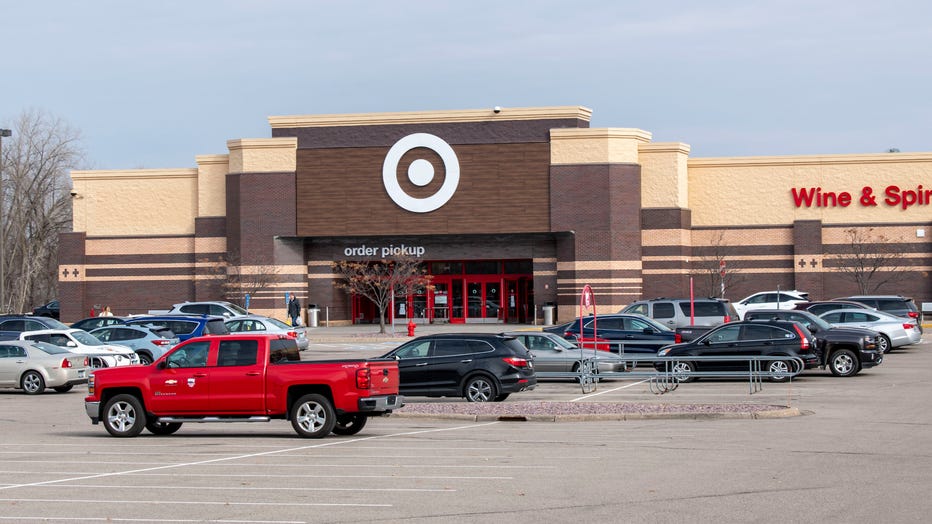Scam alert: Text message offering free groceries from Target amid coronavirus pandemic is fake
CINCINNATI - A text message claiming Target is giving away free groceries due to the ongoing coronavirus pandemic is reportedly making the rounds — but warning: It’s a scam.
The text reads that the recipient has qualified for $175 worth of free groceries and comes with a link to redeem the offer, according to WFMY-TV.
However, the link can install an undetected virus, malware, spyware or ransomware on your device — enabling hackers to obtain personal information, such as passwords to mobile banking and email, as well as credit card information, according to the station.

A file image shows a Target store in Vadnais Heights, Minnesota. (Photo by: Michael Siluk/Education Images/Universal Images Group via Getty Images)
“Don’t click on or respond to online ads or websites offering free gift cards. These are often scams,” Target states on its website.
RELATED: IRS warns of coronavirus-related scams and schemes for economic impact payments
With stay-at-home orders in place across the country due to the ongoing coronavirus pandemic, many are also forgoing in-person shopping and instead opting to buy online.
Target offers tips for safe shopping, which include paying attention to any red flags in emails that could appear to be from the retailer, but are actually a phishing email designed to lure consumers into revealing their personal information.
“Before opening, ask yourself: Am I expecting this email? Do I recognize the sender’s email address and is it spelled correctly? If this email references a company I shop, does it come from that company itself?” Target’s website states.
Target also suggests using different usernames and passwords for all accounts. And instead of passwords, use passphrases — a series of numbers, letters and symbols that stand for an easy-to-remember line or phrase — to make sure your information is more secure.
If you think you’ve been scammed, experts say to report the incident to your local law enforcement and entities like the Federal Trade Commission or IRS as soon as possible.
“By doing this, you’re likely keeping many others from becoming a victim, too,” Target states.
Kroger was also the victim of a giveaway hoax on social media in December. A Facebook post from an account disguising itself as the grocery chain under the name “Kroger.com," instead of Kroger's real Facebook page name "Kroger," offered an entire year of free groceries to “four lucky families” who shared and commented on the post.

